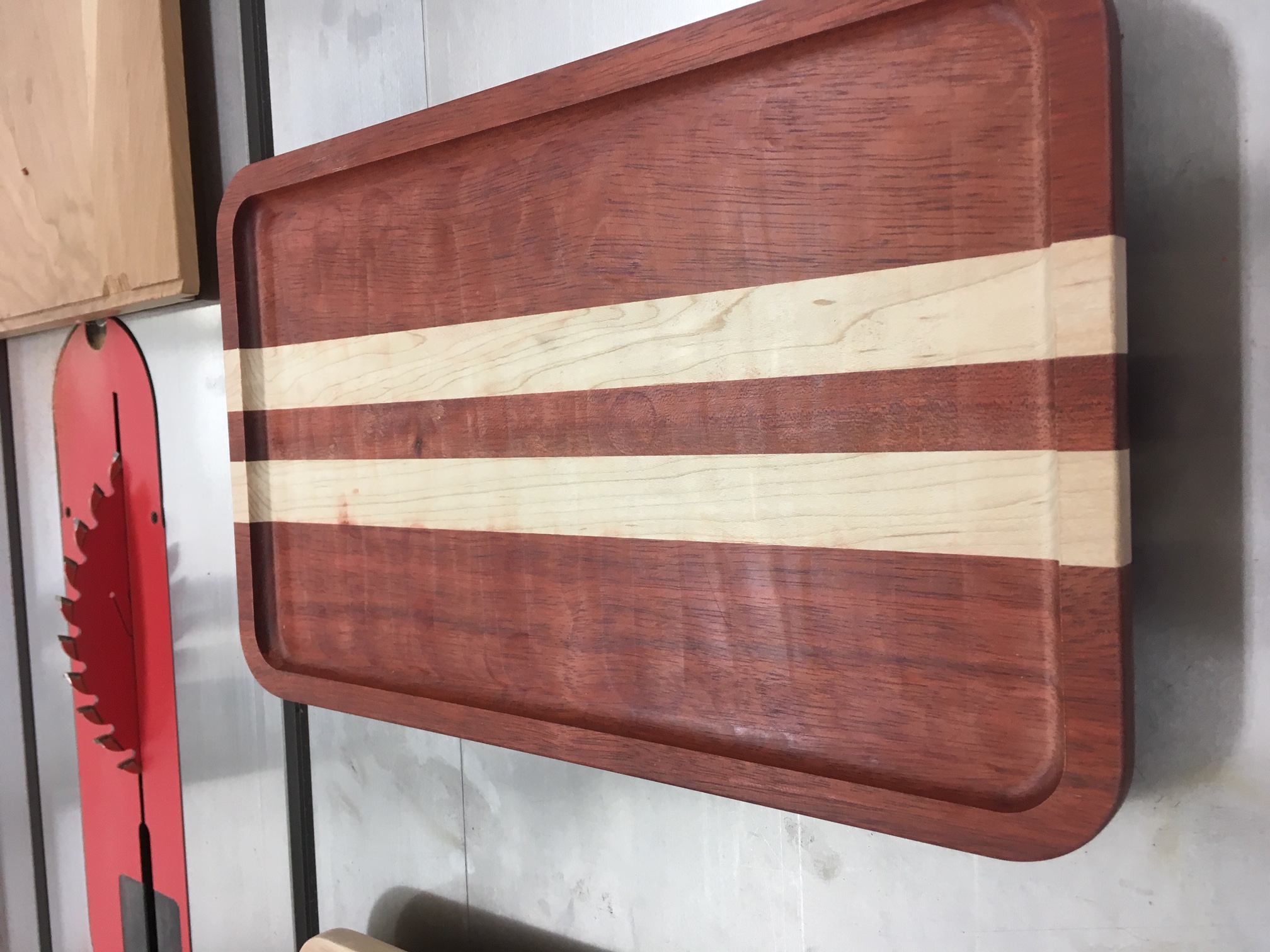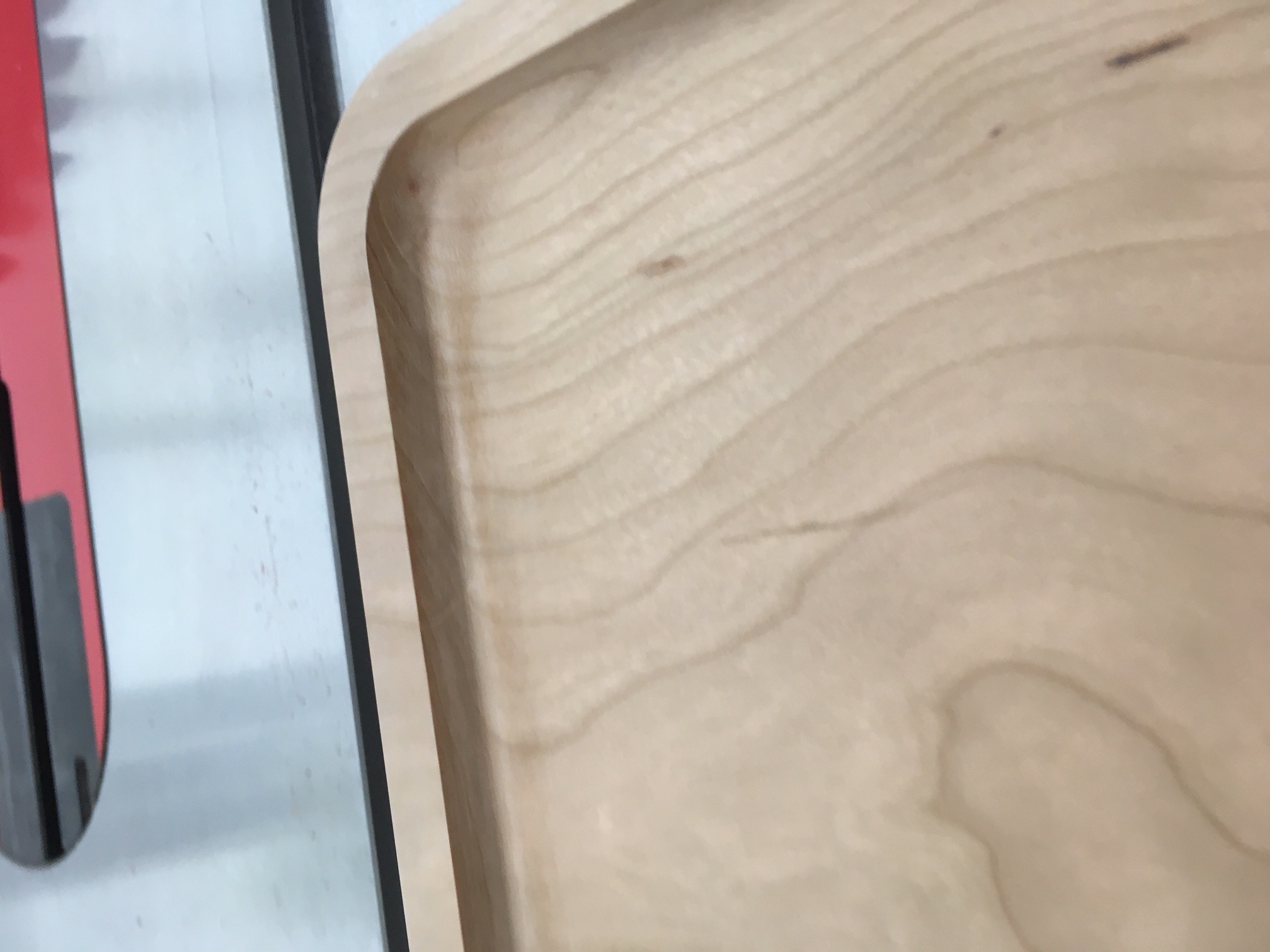08-05-2019, 04:59 PM
My son was working on some trays today, and we were having a devil of a time sanding the inside profile of the cove at either end of the trays. Any suggestion on the best way to deal with this?









▼
08-05-2019, 04:59 PM
My son was working on some trays today, and we were having a devil of a time sanding the inside profile of the cove at either end of the trays. Any suggestion on the best way to deal with this?



▼
08-05-2019, 08:23 PM
Maybe try some of these. I use them on detail and small parts work.
They are consumable so with heavy use they wear fairly quickly. But with light pressure they hold up fairly well. Dremel buffing wheels
08-06-2019, 12:12 AM
(This post was last modified: 08-06-2019, 12:13 AM by MarkSingleton.)
You might try sanding sponges. Backed with a dowel of the right diameter.
Mark Singleton
Bene vivendo est optimum vindictae The Laws of Physics do not care about your Politics - Me
08-06-2019, 05:27 AM
Try using a scraper instead. It may require you to grind your own profile (a hacksaw blade works well) but you can buy them with various radii to fit that curve.
I started with absolutely nothing. Now, thanks to years of hard work, careful planning, and perseverance, I find I still have most of it left.
08-06-2019, 01:19 PM
All good ideas. Here is where we were/are:
Dremel: Ha: we did use those exact wheels and they did a fairly good job, but due to operator error (me) went too agressive with grit and/or pressure. This approach does show promise. Non-woven pads: We did try this and it works well along the grain, but when you get to the end where you are trying not to sand cross grain, it gets to be a pain. Scraper: never even considered this: will definitely try this. ALL: thanks for the suggestions. Its ironic that what started out as a simple project for my son, I was stumped on this one detail: always something new to learn!
08-06-2019, 02:57 PM
I bought a scraper kit from woodcraft years ago, with a half dozen odd shaped scrapers in it. My favorite was a daisy shape with each petal a different size. I used it just yesterday on a live edge side for a project to fit down into a natural hollow and scrape the fuzz out. Left it smooth as glass.

Jim in Okie
You can tell a lot about the character of a man - By the way he treats those who can do nothing for him.
08-06-2019, 02:59 PM
I agree to try a scraper to start then wrap sandpaper around an appropriate size dowel and sand with the grain. It's a pain to do that on a rounded profile like that but sanding across the grain won't work. Just finished this same process on a turned piece and it took a while.
08-07-2019, 12:11 PM
(08-05-2019, 04:59 PM)Philip1231 Wrote: My son was working on some trays today, and we were having a devil of a time sanding the inside profile of the cove at either end of the trays. Any suggestion on the best way to deal with this?
08-07-2019, 01:39 PM
I'm on it gents. Between learning how to sharpen DT saws and making custom profile scrapers, who knew there would be so much metal working in woodworking?
08-07-2019, 02:32 PM
Still Learning,
Allan Hill |
|
Sanding Inside of Trays
|
|
|
|
|
Here are some supplies and tools we find essential in our everyday work around the shop. We may receive a commission from sales referred by our links; however, we have carefully selected these products for their usefulness and quality.